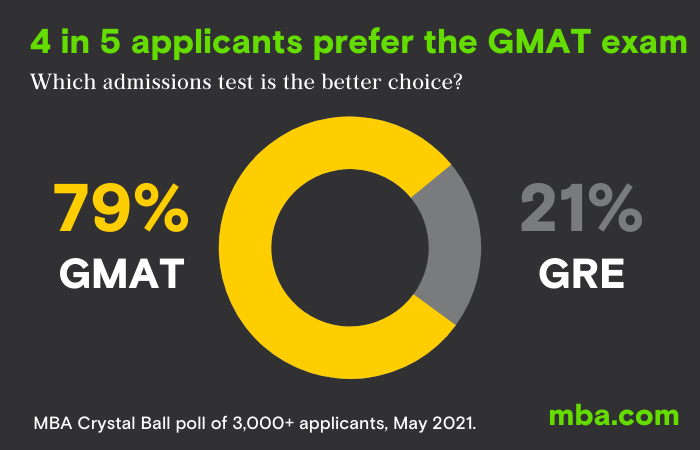
A Strategic Approach to Achieving Your Academic Goals
Introduction
Standardized tests like the GRE (Graduate Record Examination) and GMAT (Graduate Management Admission Test) play a pivotal role in the graduate school admissions process. These tests assess critical thinking, analytical writing, and problem-solving skills, providing universities and business schools with valuable insights into applicants’ academic potential. Preparing for these tests requires a strategic and focused approach. In this article, we delve into effective strategies, technological resources, and real-life examples to help aspiring test-takers excel in their GRE and GMAT examinations.
Understanding the GRE and GMAT: Format and Scoring
“Success is the sum of small efforts, repeated day-in and day-out.” – Robert Collier
Before embarking on the preparation journey, familiarize yourself with the format and scoring systems of the GRE and GMAT.
GRE Format and Scoring
The GRE consists of sections on verbal reasoning, quantitative reasoning, and analytical writing. The scoring range for the GRE is typically 130 to 170 for each section.
GMAT Format and Scoring
The GMAT comprises sections on verbal reasoning, quantitative reasoning, integrated reasoning, and analytical writing. GMAT scores range from 200 to 800.
Real-Life Example: GRE vs. GMAT Decision
Ryan, a prospective MBA candidate, debated between taking the GRE or GMAT for business school applications. After researching the format and scoring of both tests, he opted for the GMAT, considering its focus on quantitative skills relevant to his desired program.
Creating a Personalized Study Plan: A Roadmap to Success
“By failing to prepare, you are preparing to fail.” – Benjamin Franklin
Preparing for standardized tests necessitates a structured and personalized study plan to make the most of your efforts.
Assessing Your Strengths and Weaknesses
Conduct a self-assessment to identify your strengths and weaknesses in each section. Tailor your study plan to allocate more time to areas that require improvement.
Setting Realistic Goals
Set achievable goals for each study session and monitor your progress regularly. Celebrate small victories, and stay motivated throughout the preparation process.
Real-Life Example: A Goal-Oriented Study Plan
Emily, a GRE test-taker aiming to improve her verbal reasoning skills, set a goal to learn 30 new vocabulary words every week. She tracked her progress using a vocabulary app and saw a steady improvement in her practice test scores.
Leveraging Technology: Digital Tools for Test Preparation
“Technology can become the “wings” that will allow the educational world to fly farther and faster than ever before – if we will allow it.” – Jenny Arledge
In the digital age, various technological resources enhance test preparation and make studying more efficient.
Interactive Practice Tests
Online platforms offer interactive practice tests that simulate the GRE and GMAT exam experience. Engaging with these tests helps you become familiar with the format and timing.
Mobile Apps for Vocabulary and Math Review
Download vocabulary and math review apps to reinforce your verbal and quantitative skills on the go.
Real-Life Example: GRE Practice Test App
Mike, a busy working professional, used a GRE practice test app to study during his daily commute. The app’s timed questions and performance tracking allowed him to optimize his study time.
Effective Study Techniques: Maximizing Retention and Understanding
“Learning is not the product of teaching. Learning is the product of the activity of learners.” – John Holt
Employing effective study techniques can lead to better comprehension and retention of key concepts.
Active Learning
Engage in active learning strategies such as summarizing passages, teaching concepts to others, and solving practice problems.
Creating Study Groups
Forming study groups with peers allows for collaborative learning, discussion of difficult concepts, and sharing of helpful resources.
Real-Life Example: GMAT Study Group
Jenny, a GMAT test-taker, joined a study group with fellow business school applicants. They met weekly to work on practice problems together, discuss strategies, and provide feedback on each other’s essays.
Practicing Under Timed Conditions: Simulating Test-Day Pressure
“Pressure is a privilege – it only comes to those who earn it.” – Billie Jean King
Simulating test-day conditions during practice sessions prepares you to perform your best under pressure.
Timed Practice Sessions
Set aside dedicated time for timed practice sessions, replicating the time constraints of the actual GRE and GMAT exams.
Mock Exams
Take full-length mock exams periodically to gauge your progress and identify areas for improvement.
Real-Life Example: The Impact of Mock Exams
Daniel, a GRE aspirant, diligently took mock exams every two weeks during his preparation. Analyzing his performance helped him fine-tune his pacing and build test-taking endurance.
Seeking Support and Guidance: Test Prep Courses and Tutors
“Alone we can do so little; together we can do so much.” – Helen Keller
For additional support and expertise, consider enrolling in test prep courses or working with a tutor.
Test Prep Courses
GRE and GMAT test prep courses offer structured curriculum, expert guidance, and interactive learning experiences.
Tutoring Services
Working with a tutor provides personalized instruction, addressing your specific strengths and weaknesses.
Real-Life Example: A GRE Test Prep Course
Lisa enrolled in a GRE test prep course, where she received comprehensive lesson materials and individualized feedback on her practice essays. The course’s interactive approach enhanced her verbal and analytical writing skills.
Conclusion
“Success is not the key to happiness. Happiness is the key to success. If you love what you are doing, you will be successful.” – Albert Schweitzer
Preparing for standardized tests like the GRE and GMAT demands dedication, organization, and the strategic use of technological resources. Understanding the format and scoring of these tests empowers test-takers to set realistic goals and create personalized study plans. Leveraging technology enhances the study experience, while active learning techniques optimize comprehension and retention.
Simulating test-day conditions through timed practice sessions and mock exams builds test-taking resilience. Seek additional support through test prep courses or tutoring services to receive expert guidance tailored to your needs. By embracing a strategic and focused approach, test-takers can confidently pursue their academic goals and open doors to a brighter future.









